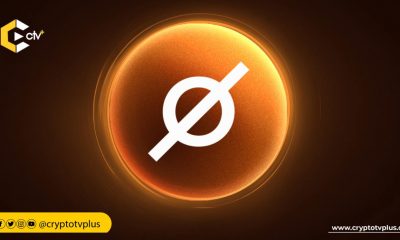News
Vitalik pushes for fast adoption of Verkle Trees on Ethereum

Ethereum’s co-founder, Vitalik Buterin, has expressed anticipation for the upcoming Verkle Trees, highlighting their potential to be a game-changer for staking nodes. Vitalik said that he wants to see the full implementation of Verkle trees.
“They will enable stateless validator clients, which can allow staking nodes to run with near-zero hard disk space and sync nearly instantly – far better solo staking UX,” he noted in a tweet. He added that it will make it easier for user-facing light clients.
Verkle Trees are a type of data structure that can be used to efficiently and securely prove the inclusion of a particular value in a set of data.
They are similar to Merkle Trees, another popular data structure used in blockchain, but with some important differences.
This allows clients to verify state changes in each block with minimal data. Verkle Trees is a critical step on the path to stateless Ethereum clients, who do not have to store the entire state data to validate incoming blocks.
In other news, Yuga Labs acquires Proof, a popular NFT brand known for Moonbirds collection, expanding its presence in the NFT market. Proof’s Oddities, Mythics, and Grails collections will merge into Yuga Labs’ gamified metaverse play Otherside.
Instead of using their own local copy of Ethereum’s state to verify blocks, stateless clients use a “witness” to the state data that arrives with the block. A witness is a collection of individual pieces of the state data required to execute a particular set of transactions.
Verkle Trees enable significantly reduced proof sizes for a large amount of data compared to Merkle Trees, making them an important tool for smart contract developers and other blockchain professionals.
Verkle Trees bring several other advantages to Ethereum, including smaller proof sizes for efficient network communication, reduced hardware requirements enhancing decentralization, faster node synchronization for quicker onboarding, potential scalability benefits with higher gas limits, and compatibility with Ethereum’s evolution towards a zk-EVM future, ensuring adaptability.
Currently, Ethereum validators need fully synced nodes containing all state data for chain validation.
Verkle Trees, part of an Ethereum Improvement Proposal (EIP), introduces self-contained execution units within blocks.
This innovation allows blocks to be verified without additional information, such as the complete state of the chain.
While Verkle Trees are currently in the testnet phase, their anticipated launch on the mainnet is set for 2024.
Read also; Yuga Labs acquires Moonbirds creator, PROOF; to expand its community

























Pingback: eBay rethinks NFT strategy with KnownOrigin, lays off Web3 team | CryptoTvplus - The Leading Blockchain Media Firm